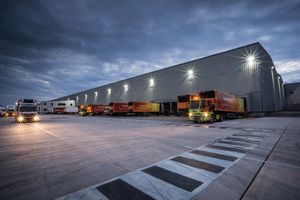This article is from the Australian Property Journal archive
FRASERS Property Australia and Dexus’ $3 billion joint venture, Central Place Sydney, will go ahead after receiving DA approval from the City of Sydney.
Sitting adjacent to Sydney’s Central Station and the proposed new Atlassian Australian headquarters, the project will be a crucial component of Sydney’s southern CBD transformation, delivering 130,000sqm of Premium-grade commercial floor place across two buildings.
“We are incredibly pleased to have received development approval, allowing us to further progress the project,” said Kimberly Jackson, project director for Central Place Sydney.
“Our development has been designed to create a place where work and lifestyle can blend seamlessly, create an exciting new destination for Sydney and leverage what is already on offer as a thriving tech and innovation neighbourhood emerges.”
With approvals now in place, Fender Katsalidis and Skidmore, Owings & Merrill (SOM) have unveiled their design for the recently approved $3 billion Central Place Sydney.
“Central Place Sydney is an exploration of how workplace design can inspire the people and companies that will shape the future. To design for innovators, we had to think like innovators,” said Craig Baudin, director at Fender Katsalidis.
“These next-generation workspaces have been designed to afford maximum flexibility and amenity to technology businesses, while also creating lively new public spaces and connections at the gateway to Central Station.”
The competition-winning building design features two towers expressed as three forms, with 35- and 37-level commercial towers and an eight-storey low-rise building, The Connector, to activate the development at street level.
“Central Place Sydney will set the benchmark in sustainability for commercial developments of this scale in Australia. The building will feature workplace environments that integrate nature, maximise day light, has provisions for natural ventilation, and is supported by renewable energy to achieve our net zero emissions in operations target,” added Jackson.
Sustainability initiatives at the project will include smart shading solutions and naturally ventilated facades, calibrated to be responsive to Sydney’s dynamic climate.
“We are working with start-ups and neighbouring universities to explore innovations in technology and circular economy, all intended to support the development ambitions for carbon reduction and provide the best possible workplace experience for tenants and customers,” said Jackson.
Construction is targeted to commence in 2023, with the first stage of the project expected to be delivered in 2027, subject to NSW Government final stage approvals.





